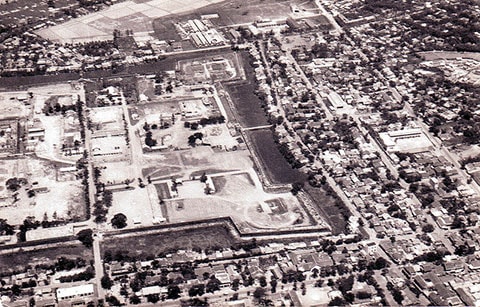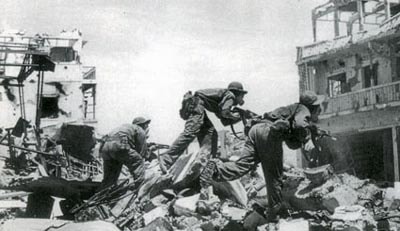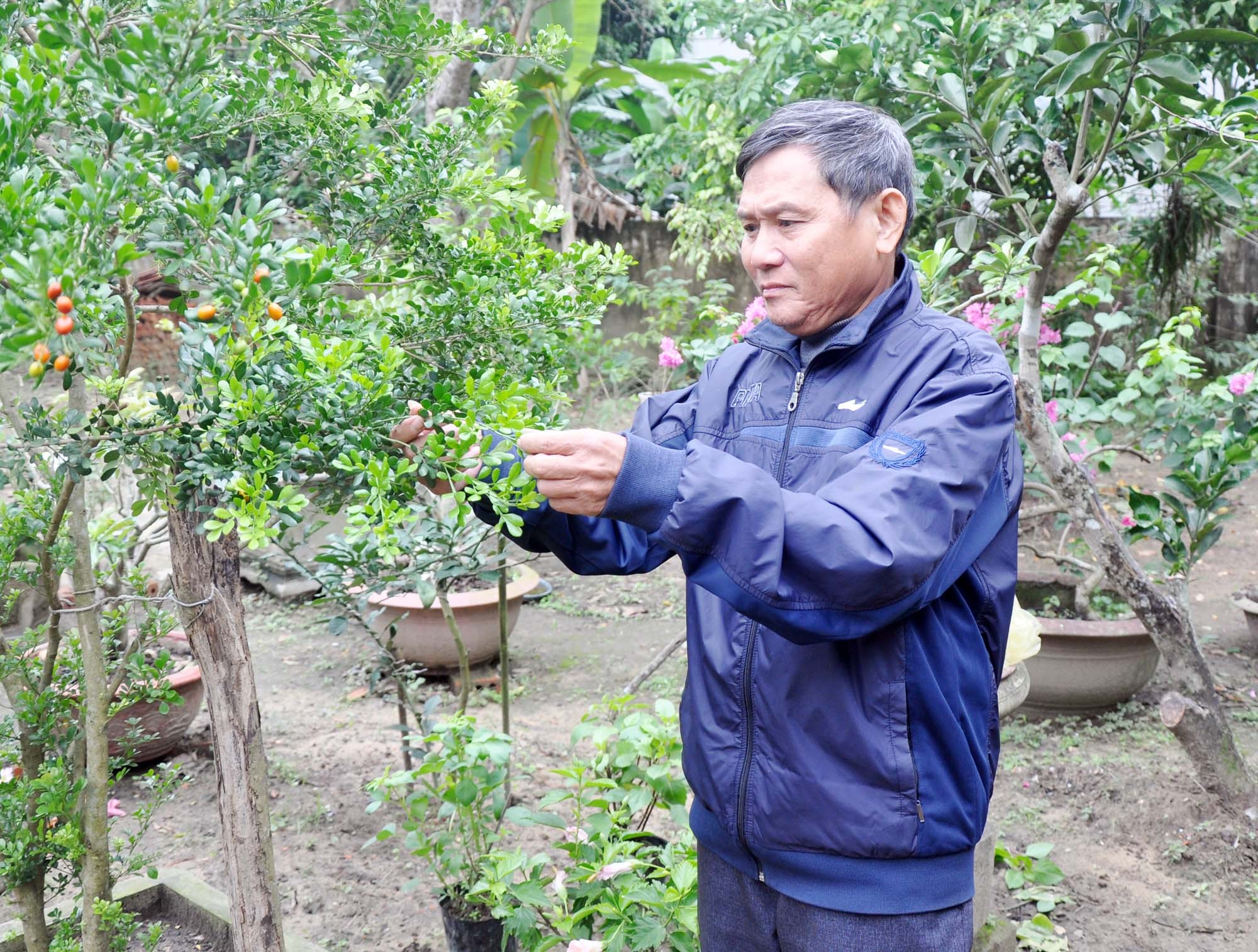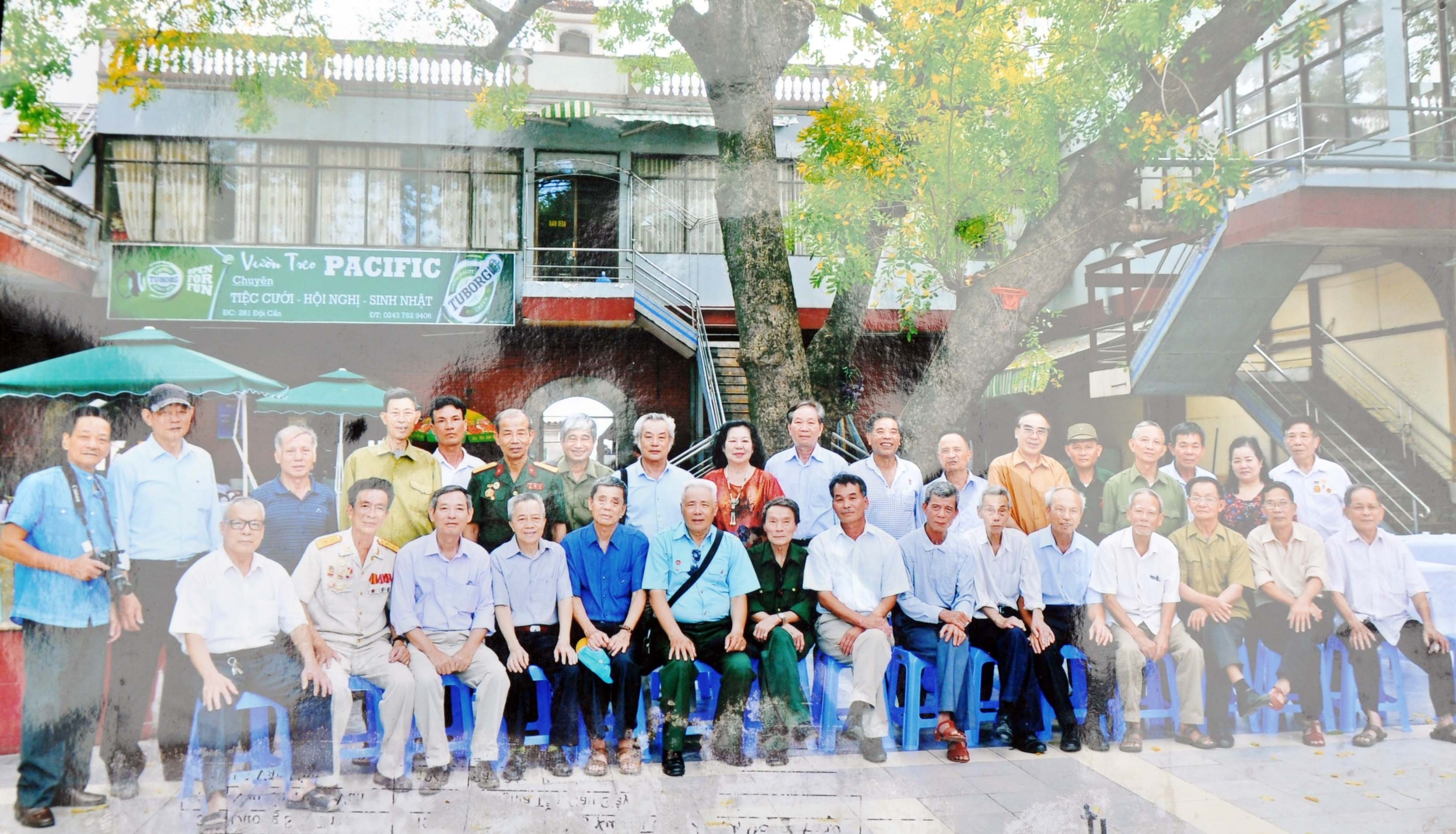Memories and wishes of a soldier of Quang Tri Citadel
(Baonghean.vn) - As a soldier of unit C10 – D15 – E284 – F367 37mm anti-aircraft artillery, who directly participated in the battle to protect Quang Tri Citadel during the “Red Summer” of 1972, Mr. Nguyen Van Ngoi is always proud of the unit’s achievements. However, he and his teammates are still very worried that their unit has not been listed in the Citadel Museum.
First use of anti-aircraft artillery to destroy enemy infantry
At the end of 1971, I (Nguyen Van Ngoi, Quynh Tam commune - Quynh Luu) was not yet 18 years old but still volunteered to join the army. After 3 months of training, at the end of March 1972, I was assigned to unit C10 - D15 - E284 - F367 37mm anti-aircraft artillery, crossed Ben Than tunnel in the upper Ben Hai river to fight in the fierce Quang Tri battlefield.
 |
| Veteran Nguyen Van Ngoi recounts his days fighting to protect Quang Tri Citadel. Photo: Cong Kien |
The places where my unit fought directly include: Cam Lo, Dong Ha, Ai Tu, La Vang, Ta Con airport, Dau Mau, Se Bon (Lang Vay)... But the most profound memory left in my memory is still the 81 extremely fierce days and nights defending Quang Tri citadel (from June 28 to September 16, 1972).
The campaign commander ordered Battalion 15, Regiment 284, 37mm Anti-Aircraft Artillery, to cross the Thach Han River to the Southwest to protect Quang Tri Citadel. I was in Company 10 - the unit awarded the title of Hero in 1971. The order to leave Ai Tu base was at 7:00 p.m. on June 29, 1972. The artillery vehicles had to leave at night because during the day, OV-10 aircraft often flew reconnaissance flights.
 |
| Quang Tri Citadel seen from above (taken in 1967). Photo archive |
Luckily that night the carpet bombing of B52 and F4H was less frequent, we crossed the Thach Han River upstream with water only up to our waists. We could not dig trenches because the ground was all sand, digging up the sand would scratch us off so we had to pile sand on top to make trenches, and cut down pineapple trees for camouflage.
At 3:00 p.m. on July 4, 1972, an enemy marine company poured into the place where our company was stationed. Comrade Nguyen Van He - Company Commander (from Hai Hung) shouted loudly: "Dear comrades! Now more than ever, the Fatherland and the people entrusted to us, we would rather sacrifice ourselves to defend every piece of sacred land. As long as there are people and artillery, we will fight. Everyone, take down all the sandbags to make fortifications, lower the artillery barrel to the ground to shoot the infantry."
I was assigned to the position of gunner number 2, facing the advancing enemy. 3 guns simultaneously fired at the enemy formation, making them unable to react, running away and shouting loudly: "Hey, Viet Cong, what kind of gun are they? It's so big!" This was also the first time our army used 37mm anti-aircraft guns to shoot at enemy infantry, so they could not advance, suffered many casualties, so we had to retreat and call in B52 and F4H planes to drop bombs.
Rescue comrades on Thach Han River
105mm artillery from the sea also continuously fired into the battlefield, our unit was submerged in bombs and bullets, one battery was hit by a laser bomb, 1 comrade died, 3 comrades were injured. The bombing and artillery attack lasted for nearly 1 hour, they added 2 more companies of marines to continue to pour into the battlefield.
 |
| Liberation Army fighting to protect Quang Tri Citadel. Documentary photo |
We continued to fight, until 3am on July 5th, there was not a single bullet left. They knew we were out of bullets and immediately launched a massive attack. The situation was extremely fierce, with only 25 men left to fight against a number 10 times larger than ours with aircraft and artillery support. The superiors ordered a temporary withdrawal. Before withdrawing, we removed all the gun breech blocks and buried them deep in the ground, leaving a platoon to fight and hold out so that the company could retreat to Road 1 towards La Vang Church.
The enemy fired flares continuously, we followed Route 1 through the Citadel, crossed the Thach Han River, the bridge had collapsed so we had to swim across. There was a comrade who could not swim (I do not remember his name, because in the fierce battlefield, it was normal for people in the same unit not to know each other's names). I swam across the river to bring him to this side, but when we were almost there, I was exhausted.
I tried to stand down to see if I had landed, but I felt dizzy and started sinking. The more I sank, the tighter my comrades held on. Luckily, I saw an iron bar sticking out from the collapsed bridgehead. I grabbed it and used all my remaining strength to pull my comrades to shore. After a short rest, we continued walking towards the bridgehead and met our comrades in the platoon.
 |
| Veteran Nguyen Van Ngoi takes care of the garden. Photo: Cong Kien |
Comrade Song - Platoon Leader ordered his comrades to go to the bunker at the head of the Thach Han River bridge to rest, and the next morning to return to the command post near Ai Tu to receive weapons and military uniforms to continue fighting until the day of liberating the South, unifying the country and being present at the Independence Palace at 11:30 a.m. on April 30, 1975.
Wish to be registered
The war has been over for more than 43 years, I intended not to recount the extremely fierce fighting days of the battalion directly protecting the Citadel for 81 days and nights. But recently, every night I toss and turn, unable to sleep, those fierce days always appear and it seems that there is a spirit of my comrades who sacrificed themselves urging me to write the truth.
 |
| Veterans of Battalion 15 - Regiment 284 in the joy of reunion. Photo: NVCC |
Because, in the Quang Tri Ancient Citadel Museum, the names of the units that participated in the 81 days and nights of fighting to protect the Ancient Citadel are not listed, but the name of C10 - D15 - E284 is not there. Mr. Nguyen Duc Vuong - former Battalion Commander, now a retired Lieutenant Colonel in Hanoi, who was the Head of the battalion's liaison committee, reported to the Ministry of National Defense but it has not been added yet.
Most of us, the survivors who returned, were wounded and sick soldiers. At least I was 65 years old, the rest were 70-80 years old. We hoped that every time we entered Quang Tri Citadel to light incense for our comrades, we would see our unit's name in the army that fought for 81 fiery days and nights, then we would be satisfied.
(Recorded according to the story of veteran Nguyen Van Ngoi, hamlet 10, Quynh Tam commune, Quynh Luu, Nghe An).


